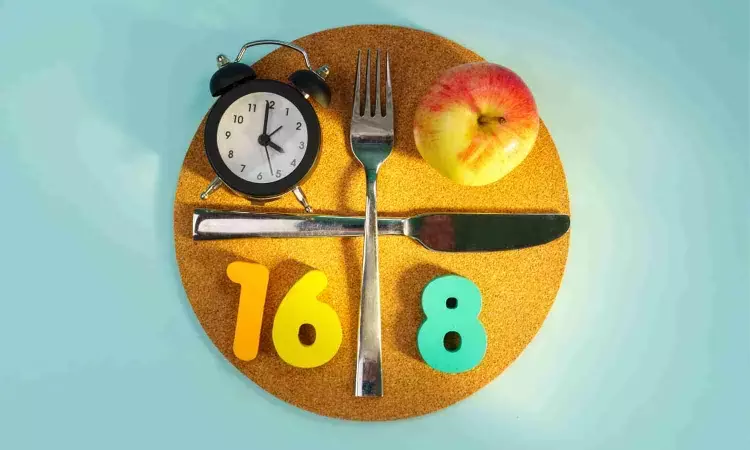- Home
- Medical news & Guidelines
- Anesthesiology
- Cardiology and CTVS
- Critical Care
- Dentistry
- Dermatology
- Diabetes and Endocrinology
- ENT
- Gastroenterology
- Medicine
- Nephrology
- Neurology
- Obstretics-Gynaecology
- Oncology
- Ophthalmology
- Orthopaedics
- Pediatrics-Neonatology
- Psychiatry
- Pulmonology
- Radiology
- Surgery
- Urology
- Laboratory Medicine
- Diet
- Nursing
- Paramedical
- Physiotherapy
- Health news
- Fact Check
- Bone Health Fact Check
- Brain Health Fact Check
- Cancer Related Fact Check
- Child Care Fact Check
- Dental and oral health fact check
- Diabetes and metabolic health fact check
- Diet and Nutrition Fact Check
- Eye and ENT Care Fact Check
- Fitness fact check
- Gut health fact check
- Heart health fact check
- Kidney health fact check
- Medical education fact check
- Men's health fact check
- Respiratory fact check
- Skin and hair care fact check
- Vaccine and Immunization fact check
- Women's health fact check
- AYUSH
- State News
- Andaman and Nicobar Islands
- Andhra Pradesh
- Arunachal Pradesh
- Assam
- Bihar
- Chandigarh
- Chattisgarh
- Dadra and Nagar Haveli
- Daman and Diu
- Delhi
- Goa
- Gujarat
- Haryana
- Himachal Pradesh
- Jammu & Kashmir
- Jharkhand
- Karnataka
- Kerala
- Ladakh
- Lakshadweep
- Madhya Pradesh
- Maharashtra
- Manipur
- Meghalaya
- Mizoram
- Nagaland
- Odisha
- Puducherry
- Punjab
- Rajasthan
- Sikkim
- Tamil Nadu
- Telangana
- Tripura
- Uttar Pradesh
- Uttrakhand
- West Bengal
- Medical Education
- Industry
Intermittent Fasting with Behavioral Support Outperforms Daily Calorie Cuts for Weight Loss, suggests study

A new study published in the Annals of Internal Medicine suggests that intermittent fasting (IMF), specifically the 4:3 method, may be more effective than daily calorie restriction (DCR) over a 12-month period when paired with behavioral support.
This randomized clinical trial involved 165 adults aged 18 to 60 with a body mass index (BMI) between 27 and 46 kg/m². The participants were randomly assigned to one of two dietary strategies within a comprehensive behavioral weight loss program.
One group followed the 4:3 IMF regimen, eating normally four days per week and restricting energy intake by 80% on three nonconsecutive days. The other group adopted a traditional DCR approach, cutting daily caloric intake by 34%, designed to match the overall weekly calorie deficit of the IMF group. Both cohorts also received intensive group-based behavioral support and were advised to engage in 300 minutes of moderate-intensity physical activity weekly.
After 12 months, the results found that the intermittent fasting group lost an average of 2.89 kilograms more than the daily calorie restriction group, a statistically significant difference (P = 0.040). The primary outcome measurement at 12 months highlighted that intermittent fasting, when backed by consistent behavioral support, led to greater sustained weight loss.
The analysis of this study was based on an intention-to-treat model, accounting for all randomized participants, even if they did not complete the study. Of the initial 165 participants (84 in the IMF group and 81 in the DCR group), 125 completed the yearlong trial. The average participant was 42 years old, predominantly female (73.9%), and had a mean BMI of 34.1 kg/m².
Although both groups benefited from the structured support system and physical activity recommendations, the findings highlight a modest but noteworthy edge for the intermittent fasting group. This research provides strong evidence that 4:3 IMF is not only feasible over a year but also slightly more effective than conventional calorie-cutting methods when behavioral guidance is included.
As intermittent fasting continues to gain popularity, this trial offers credible, science-backed support for its efficacy, especially for individuals seeking structured, sustainable weight loss strategies.
Source:
Catenacci, V. A., Ostendorf, D. M., Pan, Z., Kaizer, L. K., Creasy, S. A., Zaman, A., Caldwell, A. E., Dahle, J., Swanson, B., Breit, M. J., Bing, K., Wayland, L. T., Panter, S. L., Scorsone, J. J., Bessesen, D. H., MacLean, P., & Melanson, E. L. (2025). The effect of 4:3 intermittent fasting on weight loss at 12 months : A randomized clinical trial: A randomized clinical trial. Annals of Internal Medicine. https://doi.org/10.7326/ANNALS-24-01631
Neuroscience Masters graduate
Jacinthlyn Sylvia, a Neuroscience Master's graduate from Chennai has worked extensively in deciphering the neurobiology of cognition and motor control in aging. She also has spread-out exposure to Neurosurgery from her Bachelor’s. She is currently involved in active Neuro-Oncology research. She is an upcoming neuroscientist with a fiery passion for writing. Her news cover at Medical Dialogues feature recent discoveries and updates from the healthcare and biomedical research fields. She can be reached at editorial@medicaldialogues.in
Dr Kamal Kant Kohli-MBBS, DTCD- a chest specialist with more than 30 years of practice and a flair for writing clinical articles, Dr Kamal Kant Kohli joined Medical Dialogues as a Chief Editor of Medical News. Besides writing articles, as an editor, he proofreads and verifies all the medical content published on Medical Dialogues including those coming from journals, studies,medical conferences,guidelines etc. Email: drkohli@medicaldialogues.in. Contact no. 011-43720751


